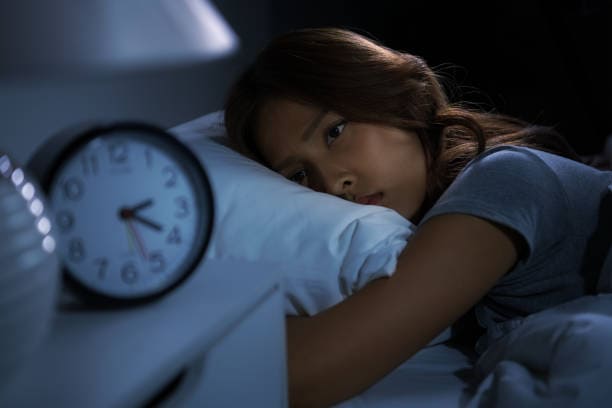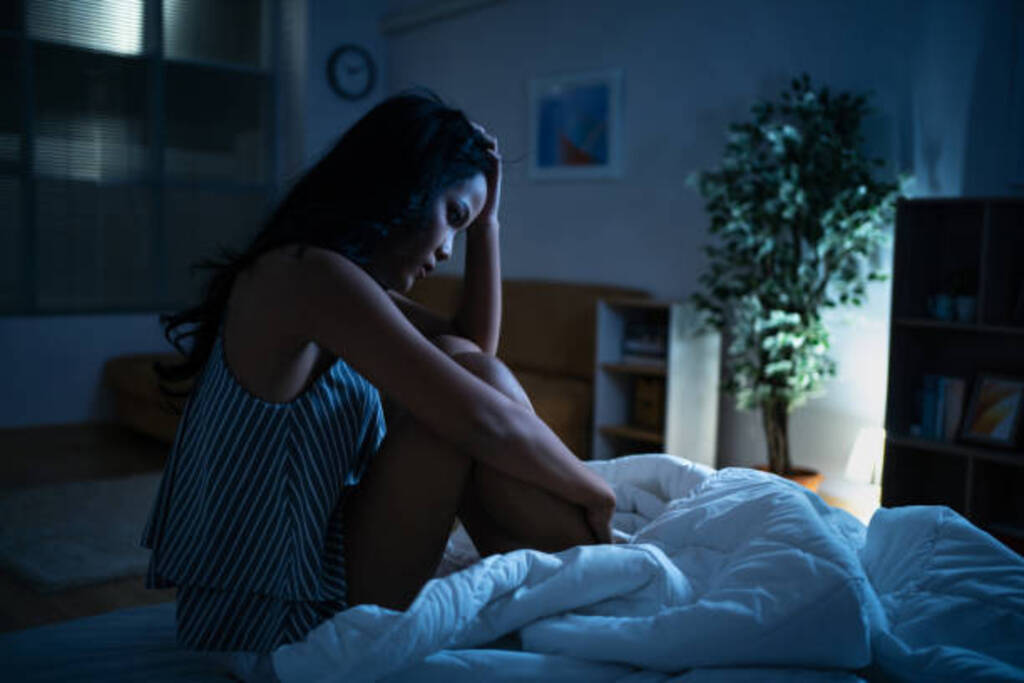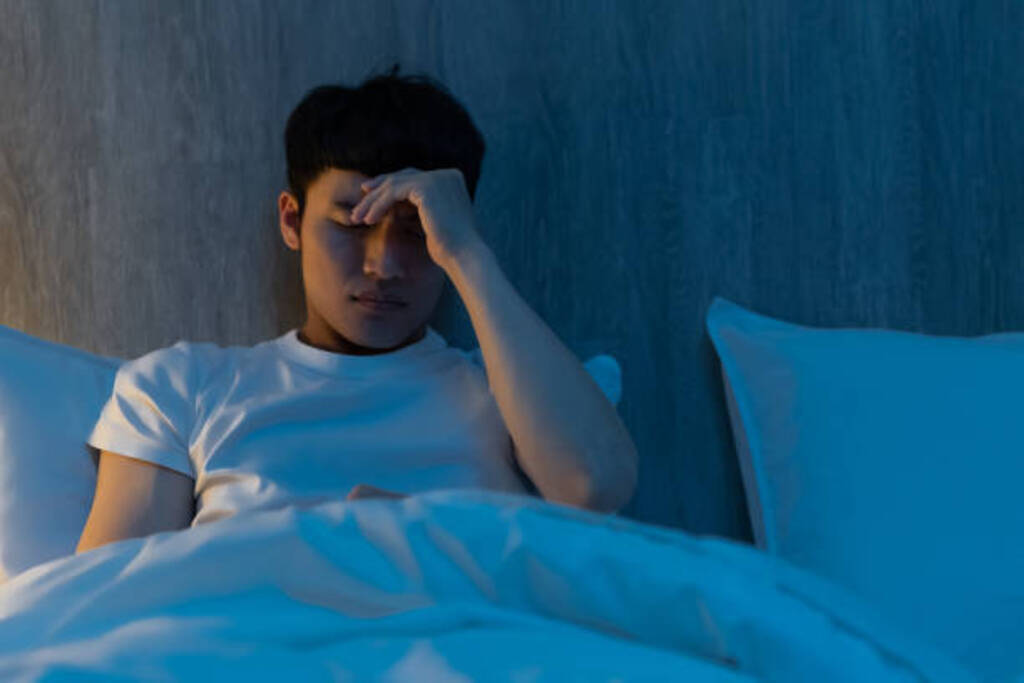
If you’re an overthinker and overworked, you can probably relate to that feeling you get when checking the clock, only to realise that the many hours you thought you had left in your day have already passed you by. Or the sinking feeling that arises at the end of a busy, stressful day when you know it’s probably time to get some rest, but, for whatever reason, you physically and mentally can’t.
The moment your head hits the pillow should essentially be relaxing, rewarding and serene. However, for many of us, that’s not the case. We’ve all been there, lying in bed at night, eyes firmly closed, but the brain decides to start racing at a hundred miles an hour! It’s not pleasant, and we certainly don’t want it to become a habit. So, what’s the cause, and how can we curb this?
Overactive Minds
These days, an overactive mind almost seems ‘normal’. Depending on your perspective, this can be both a blessing and a curse. On a positive note, the over-excitement that comes with a busy brain can really help when it comes to creativity, innovation and productivity. Yet, this could also be your own worst enemy in terms of finding it hard to concentrate on one thing at a time, thus making it impossible to concentrate.
It’s easy to get caught up in the busyness of everyday life without even trying to. It’s as if the mind always has something to be concerned with, whether that’s ticking off a to-do checklist and tying up loose ends, or simply plucking non-existent problems out of thin air. According to the Laboratory of Neuro Imaging at the University of Southern California, the average person has around 48.6 thoughts per minute, adding up to a grand total of 70,000 thoughts per day! The daily buzz of thoughts can become overwhelming and, if we’re not careful, this endless cycle can lead to a very unhealthy state of being.
An overactive mind can cause huge amounts of stress and worry, which can, in turn, be problematic for your health (both mentally and physically). And let’s not forget the additional universal strain that most of us have experienced since the start of the COVID-19 pandemic. People’s levels of anxiety have gone through the roof as a result – and they’re continuing to skyrocket. It’s hard enough to manage our feelings of unease when things are going well, but added pressures can take a toll on our ability to feel at peace.
Can Overthinking Cause Undersleeping?
Overthinking can keep you awake at night, which is the last thing you want if you’re already exhausted. Being exposed to blue light emitted by electronics can hinder transitions between sleep cycles, so make sure to switch these off in good time. Unfortunately, switching off your thoughts and feelings before bed isn’t as easy as this!
It’s unsurprising that work-related stress can affect sleeping patterns, leaving many people from all walks of life feeling restless as they toss and turn throughout the night. When you think about your day, you may end up over-analysing and unintentionally falling down a rabbit hole of thoughts. Perhaps you ask yourself familiar questions. ‘Did I do enough today?’ ‘Could I have said that differently?’ You might even worry about future events (such as an upcoming work presentation) and create many ‘what if’ scenarios.
So, why do most of these late-night thoughts tend to be negative? According to Clinical Psychologist Deborah Vertessy, this tormenting process actually occurs out of the basic need to protect ourselves. In effect, you could argue that coming up with imaginary situations is a form of being prepared. In cases of people who are more sensitive or have clinical disorders, such as insomnia, anxiety, depression or PTSD, negative thoughts may be more distressing. They may ruminate or even try to hide their feelings.
Laura Jobson, a Senior Lecturer at Monash University, explains that while involuntary memories occur just as much as voluntary ones, we’re more likely to notice them when our brain is idle (i.e. right before bed). Because memories are often linked in a network, activating one can activate others. This is why it can feel like a flood of thoughts comes rushing in at once.

Psychological Effects Of Sleep Deprivation
Do you find yourself yawning or feeling groggy during the day? It’s most likely down to sleep deprivation. An ongoing lack of sleep or reduced quality of sleep affects your psychological state and mental health, which are both necessary for everyday functioning. This can lead to long-term effects and may be caused by an underlying sleep disorder.
Sleep disorders are extremely common, so if you’re experiencing one, you’re not alone. More than 60 types of sleep disorders exist, with the most recognised problems being insomnia (difficulty falling or staying asleep), obstructive sleep apnoea (disordered breathing that causes multiple awakenings), various movement syndromes (unpleasant sensations that prompt nighttime fidgeting), and narcolepsy (extreme sleepiness or falling asleep suddenly during the day).
About 30% of people are estimated to experience insomnia, and some sleep problems may even increase the risk of developing mental illnesses. For those with psychiatric conditions, sleep problems are typically found in patients with anxiety, depression, bipolar disorder and attention deficit hyperactivity disorder (ADHD). In America, it’s been found that chronic sleep problems affect 50-80% of patients in psychiatric practice, compared with 10-18% of adults in the general population.
Eight Hours Of Shut-Eye Is Key!
To avoid unnecessary suffering, it’s important that we do all we can to get the rest we need. Getting the recommended dose of seven or more hours of sleep every night can help to combat health consequences that affect your mind and body.
As you enjoy a night of deep, quiet sleep, the following benefits occur:
- Your body temperature drops
- Muscles begin to relax
- Your heart rate and breathing slow down
- Physiological changes impact your immune system
Similarly, the same goes for a wholesome dream during REM (rapid eye movement) sleep. Interestingly, your body temperature, blood pressure, heart rate and breathing increase to levels measured when you’re awake. This type of sleep may also help to enhance learning and memory while contributing to your emotional wellbeing.
Disruption of any kind is a pain, let alone during the night when you’re trying to rest. Scientists have discovered that sleep deprivation in particular:
- Affects neurotransmitters and stress hormones
- Wreaks havoc in the brain
- Confuses your thoughts and makes you feel emotionally unstable

Sleep Should Be A No-Brainer
We won’t be able to guarantee a solution to all sleep problems, but to begin with, why not try something organic to add to your nightly routine? Here at Yawns, we’ve developed Night Caps – our exclusive sleeping capsules made of all-natural ingredients. Ashwagandha powder, Valerian root powder, Griffonia seed extract and Black pepper powder are all combined to create a supplement that’s truly unique.
The capsule shells are made out of hydroxypropyl methylcellulose. In plain English, this means they come in a clear and transparent case. This allows you to physically see the capsule contents, so there’s no guesswork involved.
Furthermore, by choosing to avoid all lab-created and artificial ingredients, our sleep capsules offer a more potent solution. Not only do the main benefits of the product focus on sleeping and relaxing, but the formula may also impact your digestion and skin, as well as having some possible antioxidant and anti-inflammatory properties. There’s no overthinking required when it comes to this choice!
What Can Night Caps Offer You?
Let’s look at two main ingredients that are commonly associated with sleep – Valerian root powder and Griffonia seed extract, holding 98% 5-Hydroxytryptophan (5-HTP).
Valerian, which in Latin means “to be strong” or “to be healthy”, is a safe herb with numerous potential benefits. It may:
- Reduce the amount of time it takes to fall asleep
- Lead to better quality sleep
- Increase total sleep time
- Impact your sense of relaxation
- Reduce some anxiety symptoms
- Influence mood symptoms and stress management
Several studies have been conducted to research Valerian’s effects on sleep. In a controlled study of 27 adults with sleep difficulties, 24 reported improved sleep and 12 of those reported ‘perfect sleep’ after taking 400 mg of Valerian root. Likewise, in another study of adults with insomnia, deep sleep was achieved 36% faster after a single dose of Valerian. During 14 days of taking Valerian, the time they spent in a deep sleep increased.
Moreover, 5-HTP produces serotonin in the body, which is a natural substance that regulates sleep, pain sensations and appetite. Serotonin can then be converted into a significant sleep-regulating hormone called melatonin. Its levels rise in the evening to promote sleep and fall in the morning to help you wake up. Therefore, 5-HTP may promote sleep by increasing melatonin production in the body.
When combined with gamma-aminobutyric acid (GABA), a chemical messenger that promotes relaxation, 5-HTP has a greater and more synergistic effect. It’s reportedly known to:
- Significantly reduce the time it takes to fall asleep
- Increase sleep duration
- Improve sleep quality

Final Thoughts
We hope that this article inspires those of you with overactive minds to take active measures when it comes to your wellbeing. If you struggle to switch off and fall asleep, that’s okay. There’s comfort in knowing that there are natural resources available. Remember, if you’re seriously struggling with lack of sleep for a prolonged period of time, it’s always best to speak to your doctor who can provide you with a sufficient amount of professional and confidential support.
As a first step, we would recommend becoming self-aware of your sleep schedule and subsequently trying out supplements like Night Caps – along with any other self-care measures that you feel comfortable with. The goal is to shift your mind’s attention, get your thoughts to settle, and then allow your body to repair and recharge, so you wake up feeling well-rested and energised.